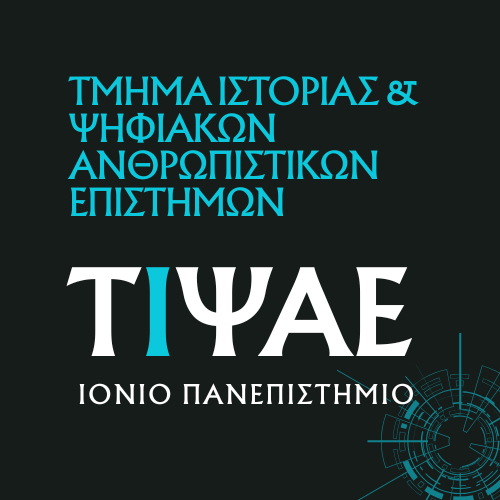PEDAGOGY Ι
Teaching Staff: Angelakos Konstantinos, Kourgiantakis Charalambos
Course Code: ΙΕΑ101
Course Type: Compulsory
Course Level: Undergraduate
Course Language: Greek
Delivery method: Lectures
Semester: 7th
ECTS: 5
Curricula: Curriculum in History up to 2024-25, Curriculum in History and Digital Humanities from 2025
Co-lecturer: Ch. Kourgiantakis
This course analyzes the building blocks and functions of the educational system as an organization, both at the macro and micro level. Apart from the discussion of teaching as a basic form of communication in educational settings, there is an extensive reference both to the organization and administration of the educational system and to the pedagogical relationship, the linguistic interaction, the teaching and the student role.
- Critical presentation of the main theories about the functioning of education as a system.
- The emergence of history and the interdisciplinary nature of the discipline of education.
- Critical review of educational institutions in the context of socio-political developments at national and international level.
- The study of teaching methods, learning theories and management of pedagogical issues in educational practice.
Learning Outcomes to be Achieved
Upon successful completion of the course the student will be able to:
- Critically examine the institution of education in terms of educational practices and its socio-political role.
- Study and compare the evolution of education systems at European and international level.
- Be familiar with the basic principles of learning theories, modern teaching methods, and critically apply them to educational practice.
- Understand the multidimensional pedagogical role of assessment and practice in its techniques
- Understand and respect diversity in the educational environment and in society.
1st week: Historical approach, epistemological formation and analysis of the scientific field of Education Sciences. Organization of research: detection of pupils' perceptions and knowledge on education and history.
2nd week: The Sociology of Education: From the First Steps to Modern Approaches. Anthropology and Ethnography of Education.
3rd week: Education as a system. School as an organization. Theories on approaching school as an organization. School organization functions. Critical view of present education system functions.
4th Week: Persons and Ideas in the History of the Sciences of Education-Critical Presentation.
5th week: Organization and administration of education: Theories school organization: from classical to systemic approach - Organizational models - Educational Management. Greek reality and international experience.
6th - 7th weeks: The basic principles of Cognitive Psychology: how man learns, acquires knowledge, perceives the past and the duration in time. Emotional and social intelligence and their connection to historical interpretation. Functions influencing / defining teaching (age, gender, social environment, etc.).
8th week : Learning . Cognitive, Morphological and Socio-Cultural Learning Theories. Learning Difficulties: detection and pedagogical treatment
9th week: School Classroom Management: Disorderly Issues in the School Class - The Role of Incentives. Forms of teaching: from teacher-centered to dialectical and group cooperative teaching.
10th week: Theory and practice of evaluation in education: Assessment, education system and social control. Types of evaluation. Student, educational work and teacher assessment.
11th week: Education and Difference - Issues of Intercultural Pedagogy.
12th -13th week: Presentation and discussion of research methodology and results - Presentation of student work - Self-evaluation and hetero-evaluation of students assignments.
Blackledge D. - Hunt B. (2000), Κοινωνιολογία της εκπαίδευσης, Αθήνα: Μεταίχμιο.
Fischer L. (2006), Κοινωνιολογία του Σχολείου, Αθήνα: Μεταίχμιο.
Αγγελάκος Κ. (επιμ), (2010), Πρόσωπα, Ιδέες και Θέματα στις επιστήμες της Αγωγής, Αθήνα: Κέδρος.
Cohen, L. & Manion, L. (2000), Μεθοδολογία Εκπαιδευτικής Έρευνας. Αθήνα: Μεταίχμιο.
Vygotsky, L. S. (1998), Σκέψη και Γλώσσα, Αθήνα: Γνώση.
Γκότοβος Α. (2002), Εκπαίδευση και Ετερότητα- Ζητήματα διαπολιτισμικής παιδαγωγικής, Αθήνα: Μεταίχμιο.
Bransford J.D. (επιμ.), (2012), Πώς μαθαίνει ο άνθρωπος, Αθήνα: Κέδρος.
Eggen P., (2017), Εκπαιδευτική ψυχολογία, Νέοι ορίζοντες στη μάθηση και τη διδασκαλία, Αθήνα: Κριτική.
Lectures, presentations, interactive discussion, work individually and in groups. Objective: self-action, development of cooperative skills, strengthening of the structural elements of critical thinking (logical reasoning, metacognition). Support Learning through the e-class platform
Written examination, written assignments, oral and digital presentations.
Back



